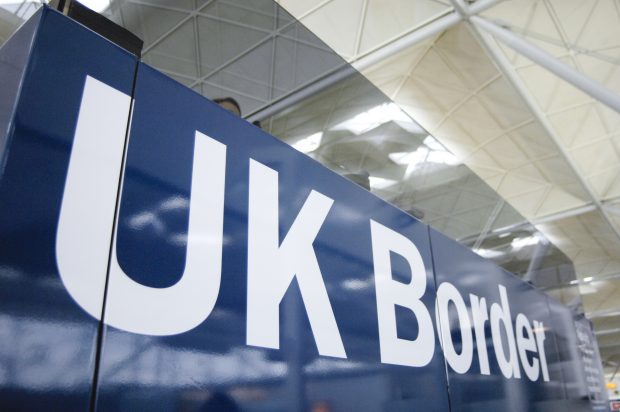The juxtaposed controls
- The UK operates border controls in France and Belgium. This allows Border Force officers to check passengers and freight destined for the UK before they begin their journey.
- These ‘juxtaposed controls’ are in place at Calais and Dunkirk ports, at the Eurotunnel terminal at Coquelles and in Paris Gare du Nord, Lille, Calais-Frethun and Brussels Midi stations for Eurostar passengers.
- The arrangement is reciprocal, with French officers completing Schengen entry checks in the UK. These arrangements are underpinned by bilateral treaties.
Social, economic and security benefits for the UK
- Millions of passengers and billions of pounds worth of legitimate trade pass through our juxtaposed border controls each year.
- With hundreds of ferry and rail crossings each week, the ports in Northern France remain a target for criminals attempting to smuggle dangerous goods and for people looking to enter the UK illegally. This is why we take border security at these ports seriously.
- In 2016, over 56,000 attempts by clandestines to cross the Channel were stopped at the juxtaposed controls.
- Removing the need for immigration controls on arrival in the UK speeds up journey times and allows transport providers to put on more services
Protecting the ports
- In 2016, both the UK and France reaffirmed their commitment to strengthening the security of our shared border and preserving the vital economic link between our countries.
- The UK has invested in: new high-security fencing, lighting, CCTV and infrared detection technology at both Calais and Dunkirk ports and Coquelles Terminal; new technology to assist Border Force officers to make detections; additional security guards and search dogs; a secure waiting area for lorries at Calais and Coquelles; and a joint command and control centre to coordinate the law enforcement response to migrants attempting to reach the UK illegally.
- Ahead of the Calais camp being closed in November 2016, the Home Secretary announced £36 million to maintain security at our juxtaposed border controls, support the clearance of the camp and to make sure it remains closed. This was the latest in a series of significant investments to secure the border.
Searches and security
- All freight vehicles are screened for hidden people or other contraband before they get to the UK.
- Border Force uses a range of techniques including detection dogs, carbon dioxide detectors and motion detection technology – as well as visual checks and physical searches to detect stowaways hidden deep within vehicles. Officers are also acting on intelligence, targeting vehicles thought to be linked to organised crime groups.
- Every passenger is subject to passport control checks against security and immigration watch lists they would be subject to if they arrived at a UK airport. Our officers are experts in the detection of forged documents and imposters.
- Border Force officers are there, 24 hours a day, every day of the year using intelligence, technology and their expertise to keep communities in the UK safe.
- As well as illegal drugs, counterfeit goods and untaxed tobacco, tens of thousands of attempts to enter the country illegally are stopped before vehicles leave France.
The role of industry partners
- Hauliers are expected to operate effective security measures, including securing their lorries with a padlock, seals and tilt cord. Where this is not done, and migrants are found in a vehicle the driver, the owner or hirer of a vehicle can face a fine of up to £2,000 for each clandestine entrant detected.
Combating organised immigration crime
- The UK has established the Organised Immigration Crime Taskforce which brings together officers from Border Force, the National Crime Agency, Immigration Enforcement and the Crown Prosecution Service.
- The Taskforce seeks to use every opportunity, whether that be in source countries, countries migrants travel through or in Europe to identify and tackle organised crime groups involved in organised immigration crime.
- We have also increased our joint intelligence work with European and international partners to target the criminal groups who facilitate people smuggling.
This factsheet was updated on 16 January 2018.

